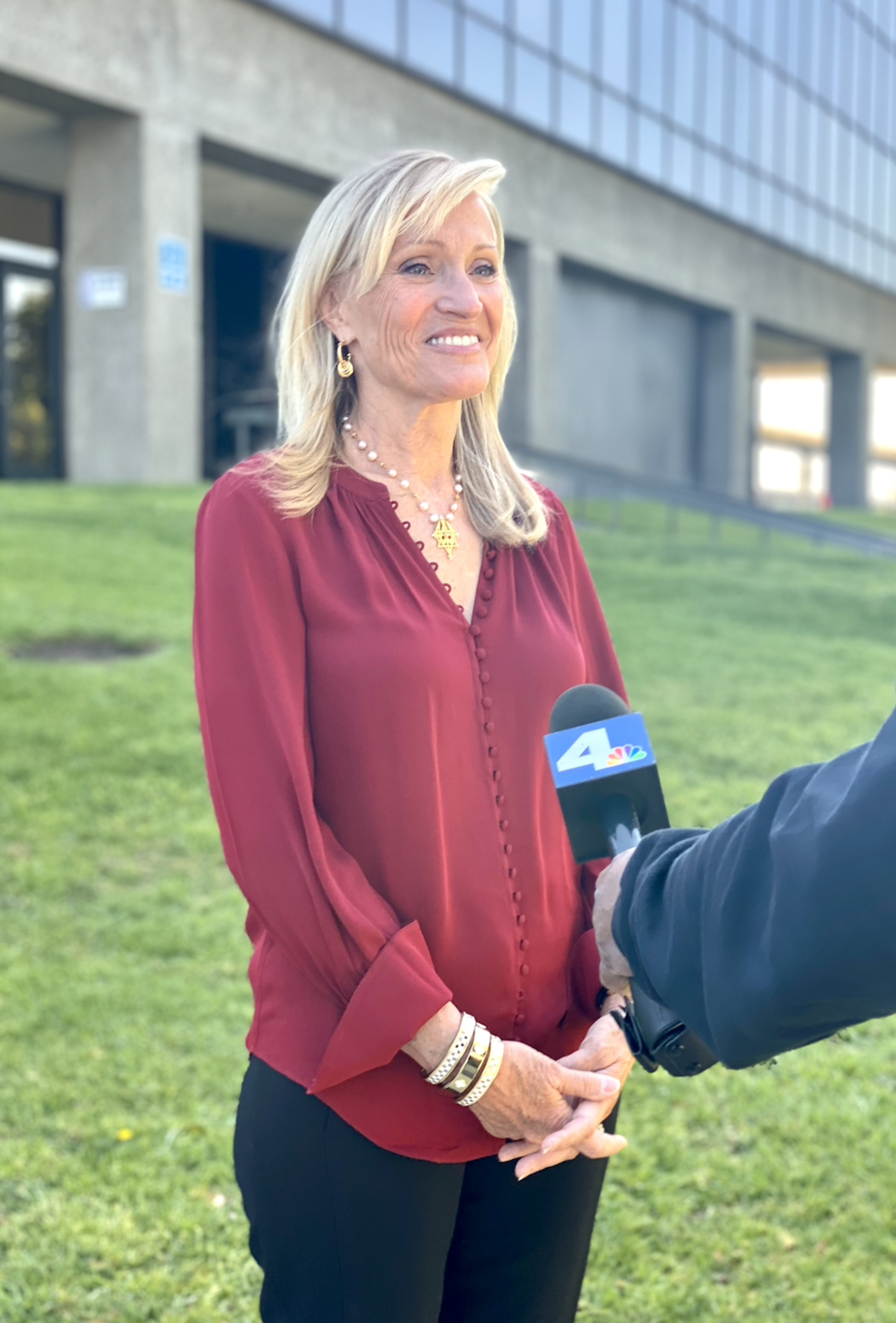Another attempt to recall Gov. Gavin Newsom wasn’t on most people’s political bingo cards in a presidential election year. But organizers of the failed 2021 effort to oust the Democrat announced Monday (opens in new tab) that they’re back with a vengeance.
While the political climate for a Newsom recall redux feels tepid compared to the height of the pandemic, organizers said they’re motivated by the state’s projected $73 billion budget deficit and the governor’s outspoken role as a campaign surrogate to President Joe Biden, who will likely face off against Donald Trump in November.
However, based on state campaign records for the committee Rescue California—as well as a previously unreported lawsuit involving a controversial crypto company founder—there appears to be several other motivating factors.
Rescue California has more than a million dollars in debt, according to records with the Secretary of State. A good chunk of that money is owed to recall committee staff from 2021. Those organizers’ companies already pocketed millions and could make even more a second time around.
Meanwhile, Rescue California is apparently being sued by Jesse Powell, the founder of crypto exchange Kraken, who gave the failed 2021 effort $1 million.
Campaign disclosure forms show that companies controlled by Anne Dunsmore—the new recall’s chief proponent and a former campaign bundler for Rudy Giuliani (opens in new tab)’s run for president in 2007—made more than $1.1 million dollars in the 2021 effort.

Meanwhile, Gilliard Blanning & Associates, a public relations firm based in Rocklin, California, hauled in more than $1.4 million, and a conservative-aligned mail house called the Monaco Group in Santa Ana collected more than $1.9 million for sending out petitions.
All of these companies claimed to be owed tens of thousands after the 2021 special election, which Newsom won with almost 62% of voters opposed.
The governor went on to spend tens of millions in leftover recall campaign money to help transform himself into a national political figure, while Rescue California has been receiving modest contributions from a handful of retirees across the state.
“They probably need to start the recall of Newsom so they can raise money to pay off the debt,” said Jim Ross, a longtime political consultant in San Francisco who ran Newsom’s 2003 campaign for mayor. “It was a good grift the first time. Why wouldn’t you do it a second time?”
Dunsmore told The Standard in a phone interview that she personally “didn’t make that much” money from the first recall because she was paying a staff of 10 to 15 people.
“Nobody walked out of that last round rich, at all,” she said. “We came out of it exhausted. But we also felt we had done our job in getting on the ballot.”
Dunsmore added that she still has the option of forgiving thousands of dollars owed to her, before clarifying: “I’m not saying I will forgive it.”
The new recall would need almost 1.4 million signatures to qualify for the November ballot, and Dunsmore said the new operation does not intend to employ professional signature gatherers. The cost of even a shoestring recall operation could have huge consequences; the 2021 special election cost taxpayers roughly $200 million (opens in new tab).
Nathan Click, a spokesperson for Newsom, said the governor is taking the recall threat seriously.
“These Trump Republicans are targeting Gov. Newsom because he is out there defending democracy and fighting for the reelection of Joe Biden and Kamala Harris,” Click said. “He’s not going to be distracted from that fight.”
Ann Ravel, the former head of the Federal Election Commission, raised concerns about dark money (opens in new tab) going to Rescue California during the 2021 recall campaign, and on Monday, she expressed alarm about the size of the debt the new effort has carried into this new fight.
“It definitely does raise red flags,” Ravel said. “It’s incredible to have that much debt.”
Not included in that amount is a contested $1 million contribution that came in four days before the conclusion of the 2021 recall election from Kraken founder Jesse Powell, who infamously slammed San Francisco over its crime issues (opens in new tab) a year later when announcing the company was moving out of the city.
Dunsmore said Powell filed a lawsuit over a dispute regarding the contribution but declined to go into specifics.
Winona Stewart, a former San Francisco resident who now lives in Carmel-by-the-Sea, has continued to give $25 a month to the Rescue California committee for more than two years after Newsom defeated the recall. She called his time in office a “colossal failure.”
“I used to live in San Francisco. It’s always been my favorite city in the world,” Stewart said. “It just breaks my heart to see what [Newsom] has done. They’ve just destroyed that city.”
However, Stewart was disappointed to learn that the committee has done little more over the last year than collect monthly dues from her and a handful of retirees. That feeling turned to shock when she learned Rescue California had a million dollars in debt, with a good portion of that money owed to the same people who led the last recall effort.
“Oh my god, it’s like self-interest,” Stewart said. “I thought people were genuine. All I can say is thank you for letting me know.”
